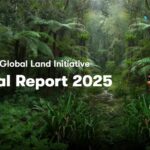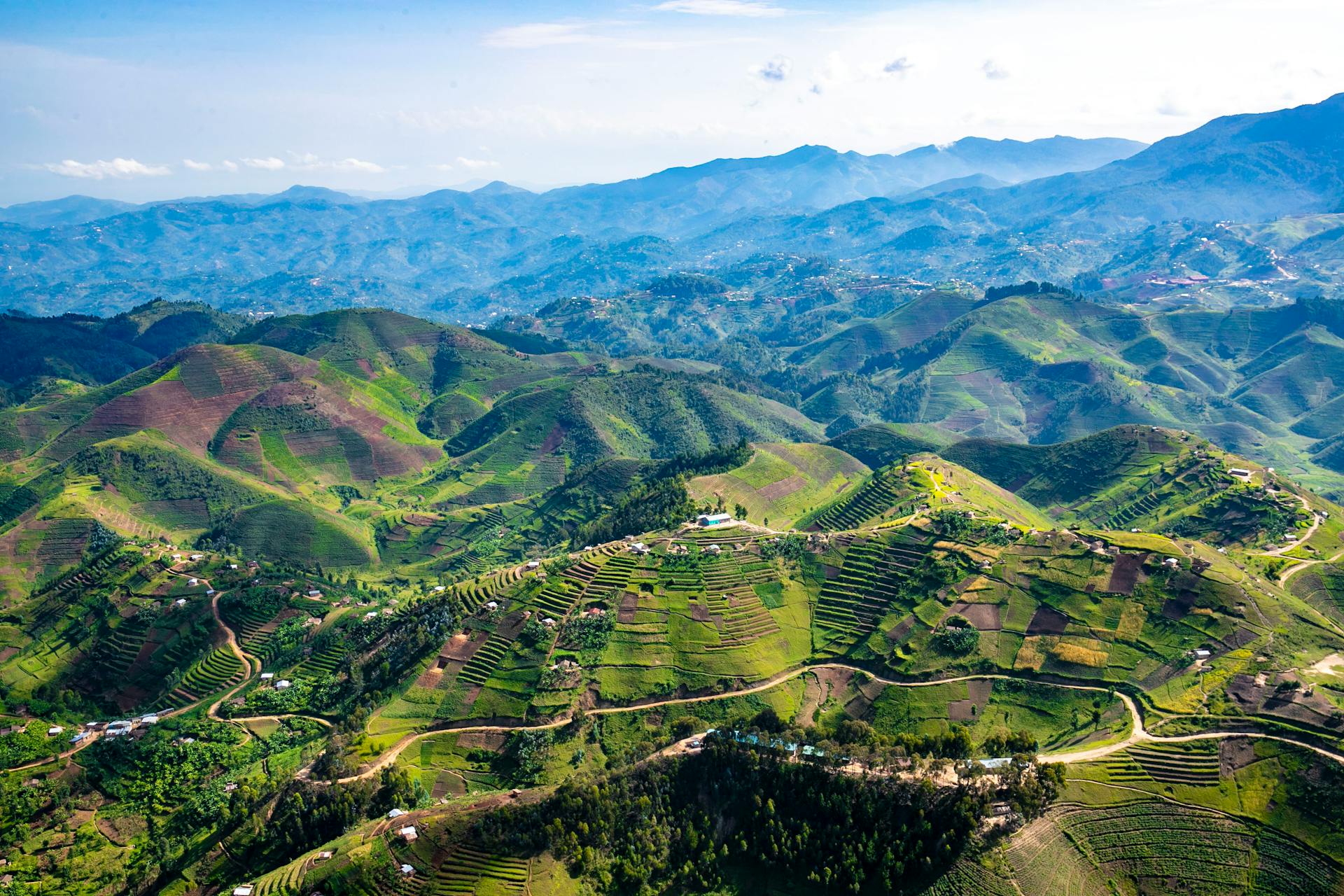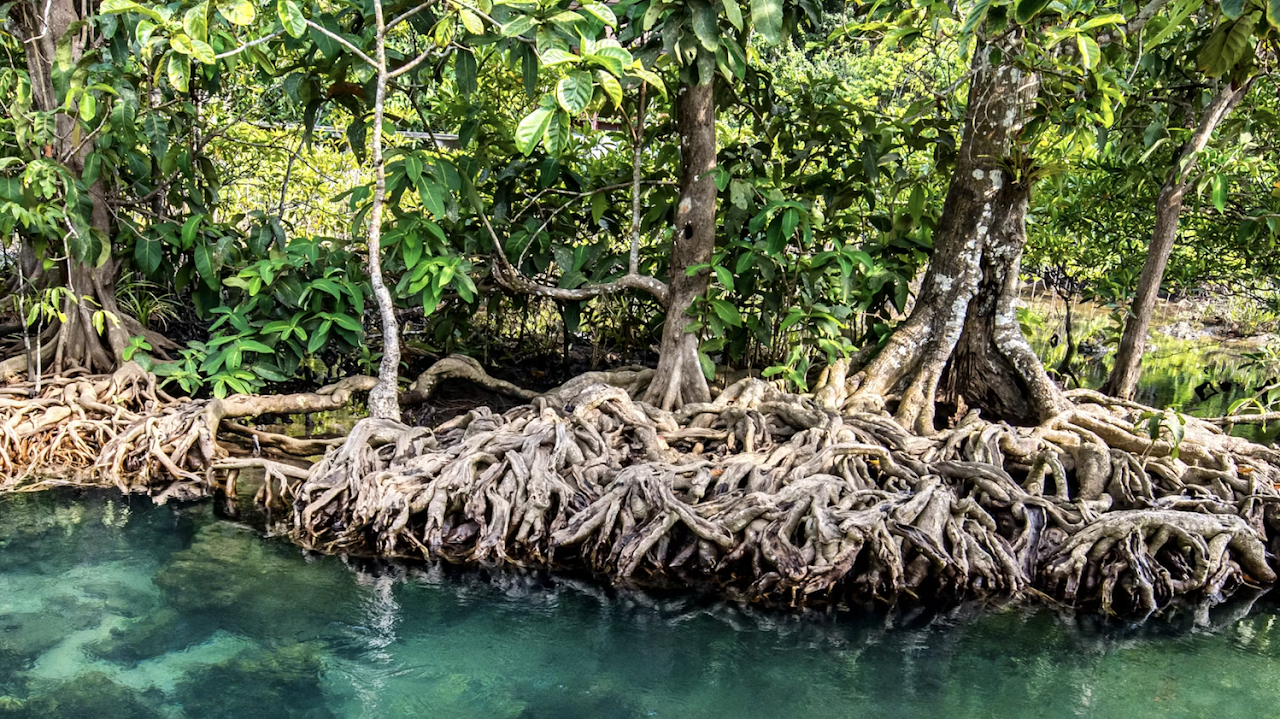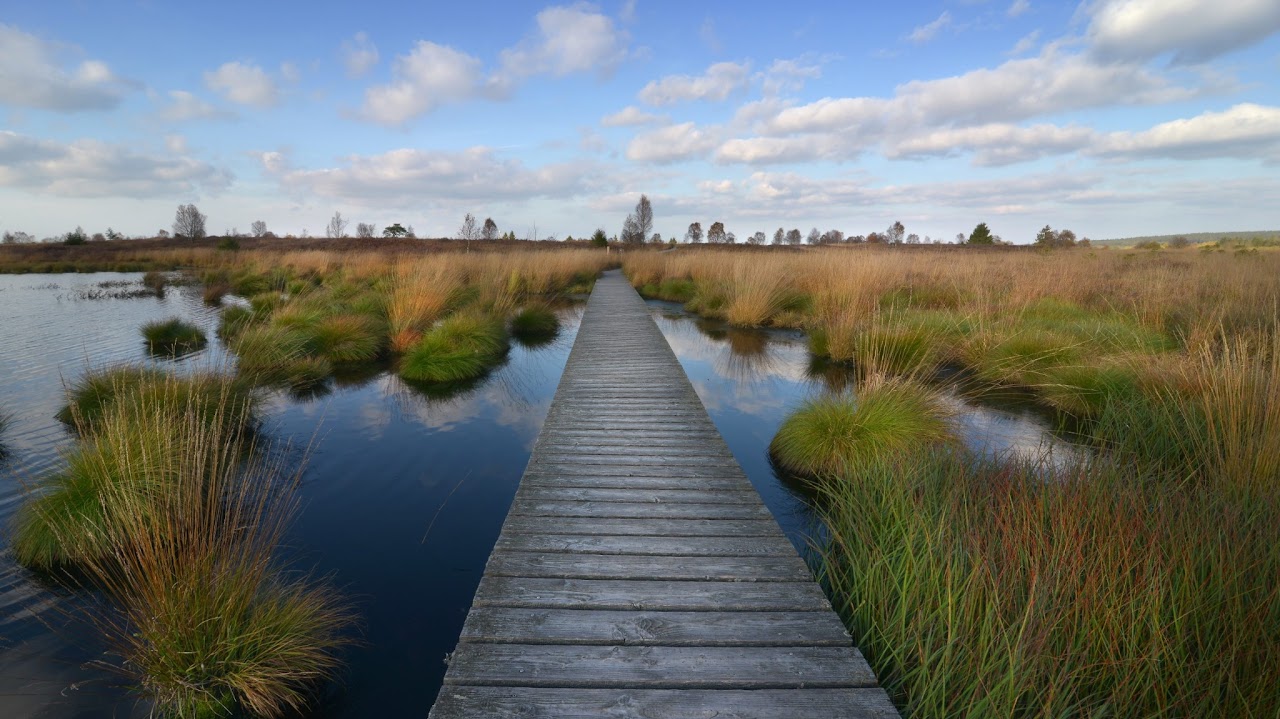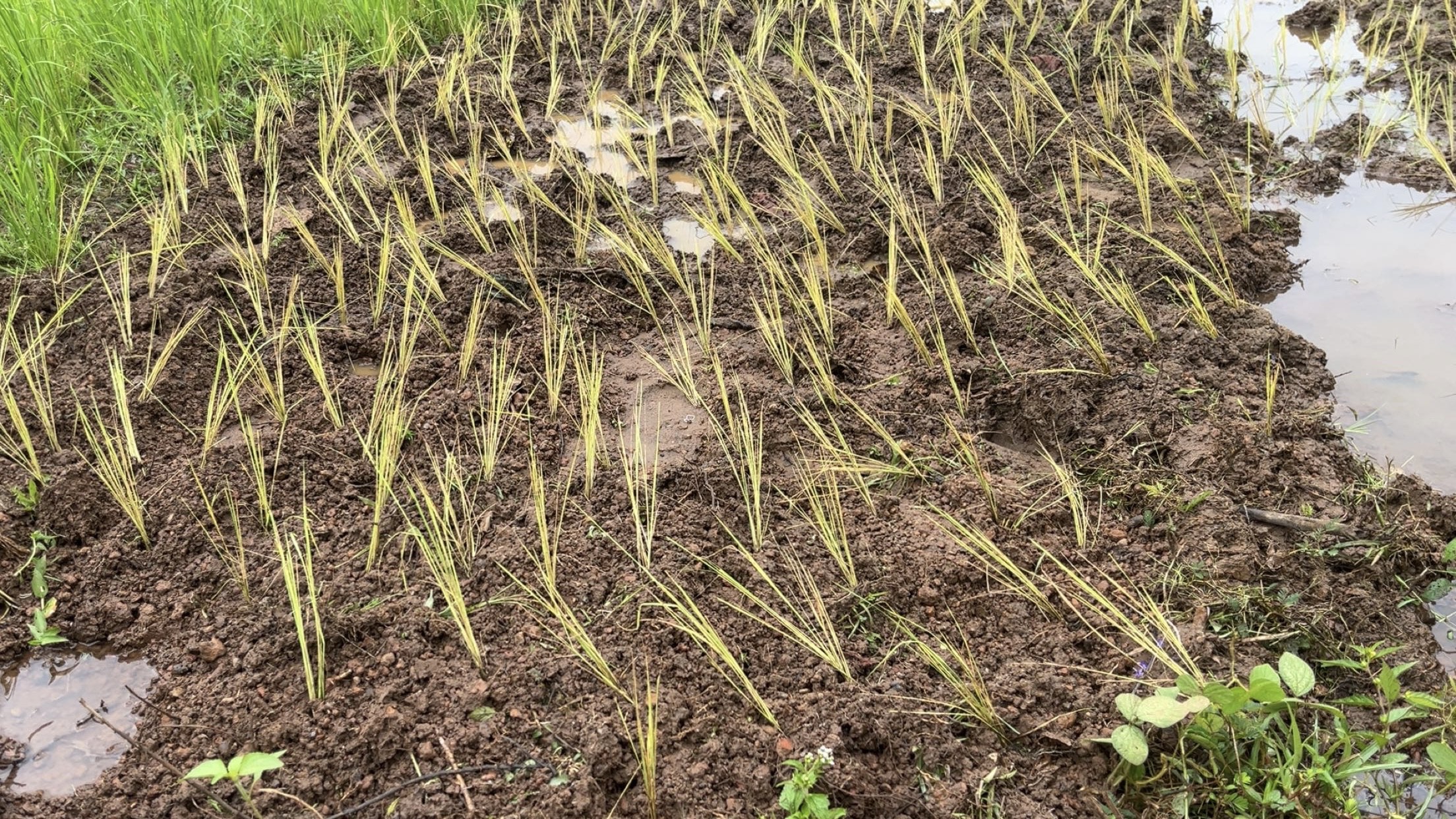Restoration Pavilion energizes UNCCD COP16 with storytelling and innovation
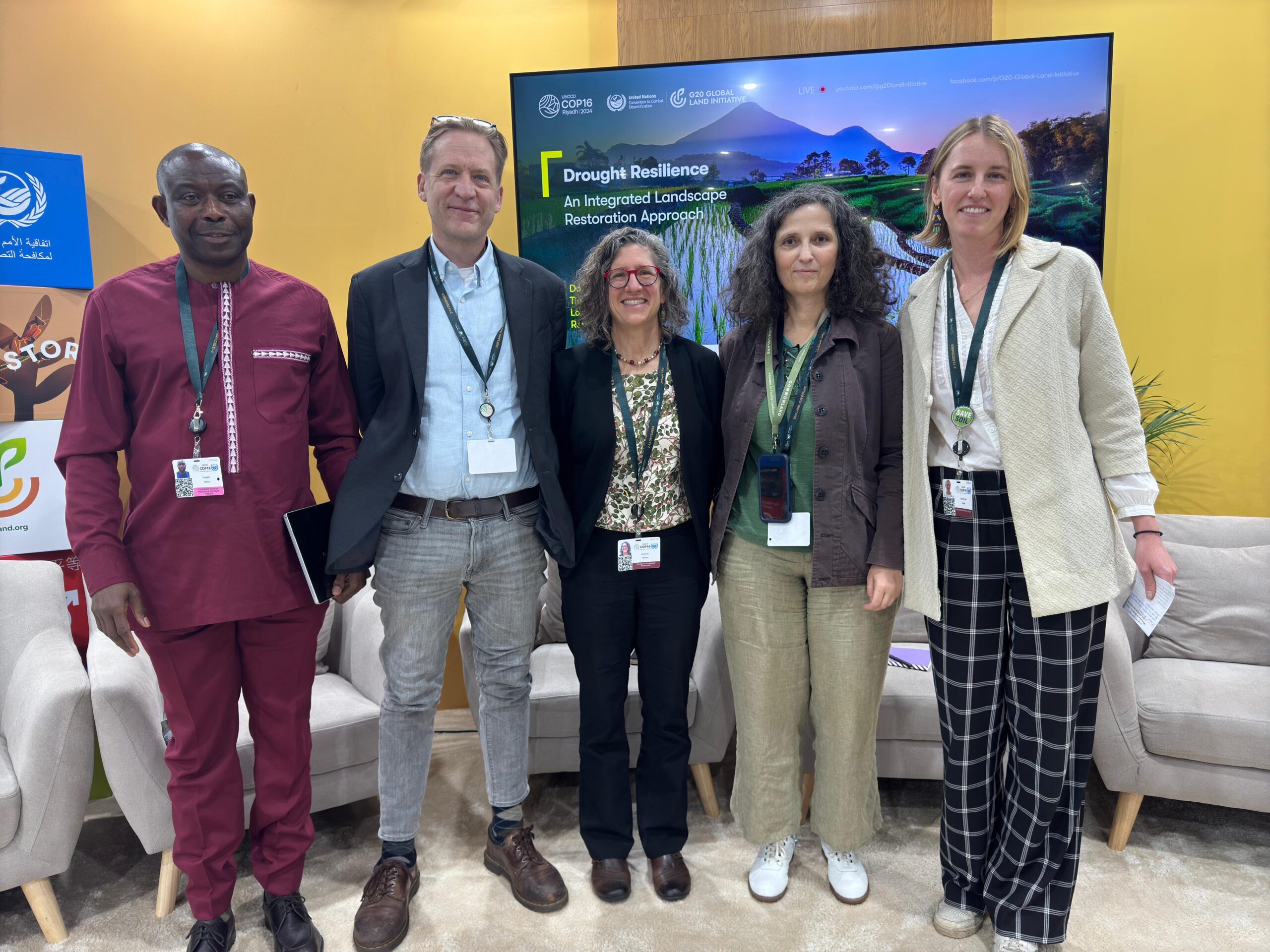
Panelists from the event on ‘Drought Resilience’ at the Restoration Pavilion during UNCCD COP16, on 6 December 2024, in Riyadh, Saudi Arabia.
Photo credit: UNCCD/G20 Global Land Initiative
The Restoration Pavilion, organized by the UNCCD G20 Global Land Initiative (GLI) continued to inspire and energize attendees on the fifth day of COP16, highlighting storytelling as a central tool in the fight against land degradation.
Advocates and experts emphasized how storytelling, especially within indigenous communities, preserves essential knowledge and practices, fostering a shared sense of responsibility for land stewardship.
The day’s events brought together a dynamic range of themes, innovative projects, and passionate voices, showcasing global efforts in restoration:
- Paths to Restoration: Inspiring Initiatives and Showcasing Impact with Small Grants demonstrated the transformative potential of small-scale funding in driving meaningful change. Attendees heard from grassroots leaders in The Gambia, Argentina and Cameroon. The speakers shared how targeted grants enabled them to implement scalable solutions, from neutralizing acidic soils with oyster shell meal to restoring urban wetlands and setting up solar-powered nurseries. These projects underscored how financing can empower communities to address local challenges while creating global impacts.
- Changemakers in Legislation: Prioritizing Land Restoration in National Policies brought together a high-level panel of parliamentarians from Canada, Kenya, Uganda and Trinidad and Tobago to discuss the role of policy in driving restoration. Speakers highlighted the importance of integrating land restoration into broader national strategies, such as food security, climate resilience and biodiversity conservation. Legislators shared insights into how effective laws, combined with strong enforcement mechanisms, can regulate unsustainable practices and incentivize eco-friendly innovations.
- Her Power: Women Leading the Path to Healthy Land celebrated the indispensable role of women in restoration efforts. From grassroots community organizers to national leaders, women shared stories about mobilizing local groups, advocating for policies and leading groundbreaking initiatives that address both environmental and social challenges. This session highlighted how empowering women directly contributes to healthier ecosystems and more resilient communities.
- Empowering Communities and Preserving Ecosystems underscored the significance of involving local communities in every stage of restoration. Speakers shared inspiring examples of community-led projects that paired ecological renewal with social and economic benefits, such as training indigenous youth in sustainable practices and fostering partnerships between farmers and conservationists.
- Emerging Issues and Technologies in Forest Restoration spotlighted innovative solutions to land degradation. They showcased the potential of solar-powered nurseries, drone-based monitoring and cutting-edge mapping tools. Panelists emphasized how these technologies not only enhance the efficiency of restoration projects but also empower communities by building local capacity to manage and sustain restored ecosystems.
- Drought Resilience Through an Integrated Landscape Restoration Approach focused on comprehensive strategies to combat the growing threat of drought. Experts presented scalable frameworks that integrate water management, agroforestry and soil health improvement to build resilience in drought-prone areas. Case studies demonstrated how such approaches can simultaneously support livelihoods, preserve ecosystems and mitigate the impacts of climate change.
- Invest, Restore, Thrive marked a milestone moment as the Pavilion unveiled a bold initiative aimed at funding and scaling land rehabilitation projects globally. Remdy is set to combine AI-powered restoration techniques with innovative financing models to address large-scale land degradation. The launch drew enthusiastic support from stakeholders eager to collaborate on this transformative venture.
- A Future at Risk: The Policy Challenge of Land Degradation for Children’s Wellbeing shed light on the urgent need to protect children from the cascading effects of land degradation. Panelists explored how degraded landscapes affect child health, nutrition, education and overall wellbeing. The session called for immediate policy action to ensure restoring land becomes a top priority for safeguarding future generations.
As the Pavilion highlighted throughout the day, storytelling bridges scientific innovation and cultural traditions, helping to make restoration efforts more inclusive and impactful. By weaving together diverse voices and experiences, the Restoration Pavilion continues to inspire action and foster global collaboration in addressing land degradation.
The Restoration Pavilion will remain a hub of transformative discussions and visionary projects until its final day on 11 December 2024.
